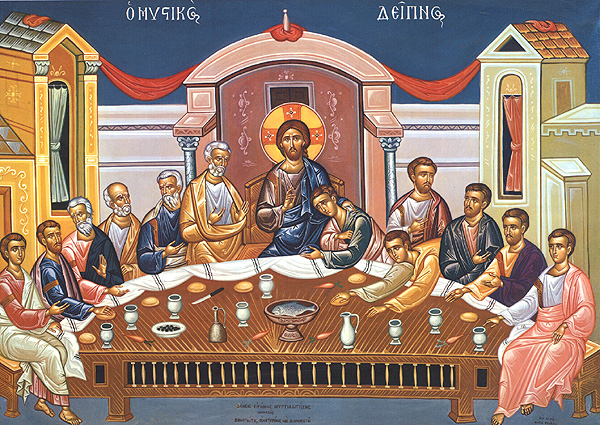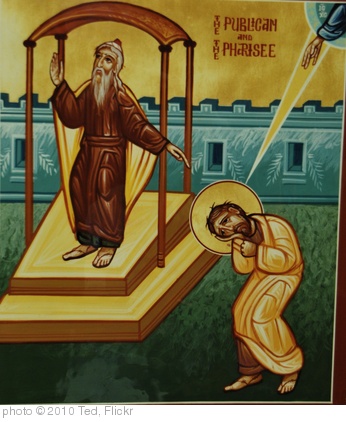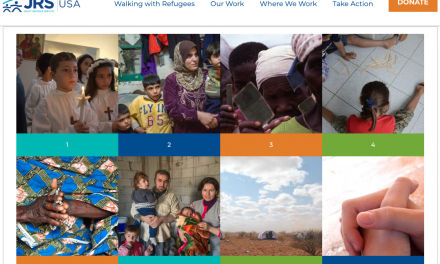Lectionary: 119
Proverbs 9:1-6
Psalm 34: 2-7
Ephesians 5:15-20
John 6:51-58
This week’s readings are about two themes: wisdom and life.
The first reading speaks of wisdom as a person building a house and preparing a table of food to entice passers-by to enter. Wisdom is not a passive conceptual category, but an active agent. She draws people enter in, in order to nourish them and give them life.
The second reading is a more straightforward ethical exhortation from St. Paul to “live not as foolish persons but as wise.” He says we should make the most of the opportunity each day provides, and that our joy should not be artificially induced by wine but should come from the Holy Spirit, overflowing from us through psalms, hymns, and spiritual songs.
The psalm is one of praise and vindication. The Lord has heard the prayer of the poor and saved him from distress. The psalmist then invites others to glorify in the Lord with him, to “taste and see” His goodness.
The Gospel reading is the beginning of the “bread of life discourse” in John. It is where Jesus enjoins his followers to eat his body and drink his blood, for “unless you eat the flesh of the Son of Man and drink his blood, you do not have life within you.” Those who do so eat and drink have eternal life, and will be raised on the last day. The partakers of the Lord’s body and blood remain in Him, and share in His life. As Jesus explains, “Just as the living Father sent me and I have life because of the Father, so also the one who feeds on me will have life because of me.”
Many of those who heard Jesus’ words here thought them utter foolishness. Most of them left Jesus, unable to accept such flagrant contradiction of Torah precepts. Yet the Lord is doing here the same thing that Moses did in Deuteronomy 30:19, where he tells the people “I call heaven and earth to witness against you today that I have set before you life and death, blessings and curses. Choose life so that you and your descendants may live.” Jesus challenges every religious authority and instruction in which his followers have invested their trust. He gives them a new and climactic command, and the only pretext is that it leads to life.
For those who accept Jesus’ words, the reception of His Body and Blood in the Holy Sacrifice of the Eucharist becomes the ultimate expression of God’s saving wisdom. It is the consummation of enacted wisdom, the highest means of fulfilling St. Paul’s injunction. It is the Lord Himself who builds the house and prepares the table for us, and invites us to enter in and receive the nourishment we need to live.
In times of crisis in religious authority such as now, it is important to remember that it is Jesus himself who is the incarnate Wisdom and eternal Life that we seek. He Himself makes the table for us, and offers His own body and blood as meat and drink for us, that we might live.
It is understandable that we question our fundamental assumptions in the wake of betrayals of the kind we have experienced at the hands of Church leaders and pastors. What is true and what is false? What is real and what is illusory? One distinction is too stark and too primal to deny, however: that between life and death. We may not be able to know which of our perceptions, thoughts, or impressions are real, but we can never be mistaken about our presumption that to be dead is different than to be alive, and in order to have such a conviction we ourselves must still be alive, at least for the moment.
We also know that we long for life, true life. We seek what is true and strive to act according to it because we believe that in this way we will find life and avoid death. Jesus comes to us today to tell us He and He alone is the true life. He and He alone is the truth. And most importantly, He and He alone is the way to the true and everlasting life for which our hearts yearn.




